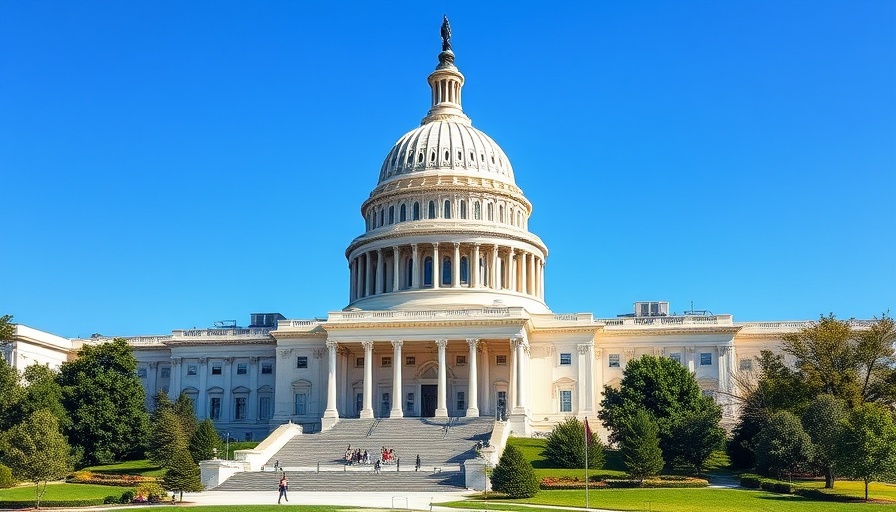
Understanding the True Impact of the Big Beautiful Bill on Franchisees
While the Big Beautiful Bill has been hailed by many as a significant victory for franchise owners, it’s essential to look deeper into its implications. The tax relief measures set forth come with a myriad of complexities that may ultimately burden franchisees instead of providing the freedom they anticipate. This article aims to unravel the impact of the bill and highlights why it may be more beneficial for franchisors and large corporations rather than the individual operators.
Tax Relief: Reality vs. Expectation
When talk of tax relief comes up, most franchise owners might assume that this translates directly into relief for their businesses. However, the benefits provided by the Big Beautiful Bill often come with strings attached that can be burdensome. Important provisions such as the Qualified Business Income deduction sound promising, but the requirements to qualify can frequently leave franchise owners feeling overwhelmed and confused.
Income limitations that phase out benefits for higher earners alongside intricate record-keeping requirements can lead many franchise owners to realize they may actually be spending more on compliance than they will save in taxes. The question remains, is this truly a victory for franchisees?
The Capital Expenditure Conundrum: 100% Bonus Depreciation
The allure of 100% bonus depreciation appears to be a financial gift on the surface, but it forces franchisees into a 'capital expenditure pressure cooker.' The necessity to make large immediate purchases in hopes of maximizing tax deductions often leads to hastily made decisions that could negatively impact cash flow.
This can create a cycle where franchisees may find themselves front-loading tax benefits only to face future depreciation gaps. Smart franchise operators know that sound business decisions should not be dictated by tax timing.
Franchisor vs. Franchisee: A Tale of Divergent Interests
One crucial aspect to consider is that many tax benefits outlined in the bill could primarily benefit franchisors and larger corporations. For example, provisions related to Research & Development (R&D) tax incentives and the Qualified Small Business Stock (QSBS) exemption tend to serve those with more significant financial capacity over individual franchisees. As a result, while franchisors celebrate their ability to leverage these advantages, the expected benefits often do not trickle down to their franchise owners.
Compliance Costs vs. Benefits: A Costly Balance
With the introduction of new tax provisions comes increased compliance costs that can erode the anticipated benefits from the tax relief measures. Understanding the new regulations and managing them appropriately require both time and financial resources - something often in short supply for independent operators.
In many cases, these compliance expenditures can outweigh any financial gains from the tax strategies available, leading franchisees to reassess the wisdom of relying heavily on such measures for successful operation.
A Focus Beyond Tax Benefits: Building Sustainable Growth
Ultimately, while the Big Beautiful Bill may offer some tax incentives, franchisees should prioritize their business strategies on operational efficiency, customer satisfaction, and sustainable practices rather than become overly reliant on tax benefits.
This sustained focus can foster not only growth but also resilience in an unpredictable economic landscape. Brand consistency, effective local market strategies, and responsive franchise support systems become the true pillars of long-term franchise success.
Making Informed Decisions in a Complex Landscape
As franchise owners navigate the complexities brought by the Big Beautiful Bill, understanding the details behind the so-called 'benefits' is crucial. The real value lies not solely in tax relief but also in operational practices that enhance performance metrics and promote brand consistency across franchise locations.
It’s imperative for franchisors to arm their franchisees with comprehensive insights and strategies that transcend simple tax considerations, fostering an environment where franchisees can thrive independent of the fluctuating nature of tax laws.
Where to Go From Here: An Action Plan for Franchisees
To ensure success, franchise owners should continually educate themselves about their rights and benefits under the law while consulting with financial advisors to understand their unique business circumstances. Developing a strategic plan that aligns with operational effectiveness and brand goals, while remaining mindful of the financial implications brought by policies like the Big Beautiful Bill, can set a franchisee on a solid path to success.
In closing, despite the allure of tax relief, owners must focus on sustainable growth strategies for their franchises. Learn more here. Add Row
Add Row  Add
Add 




Write A Comment